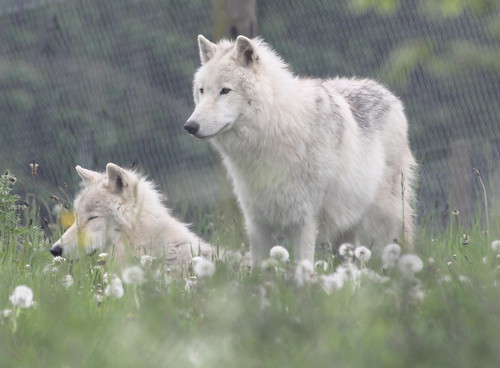Wolves are playing fun and invigorating football but it needs to bring wins
Wolves #Wolves

Exciting but enraging. Fun but frustrating. Invigorating but infuriating. Welcome to Wolverhampton Wanderers: 2023-24.
The Gary O’Neil-Matt Hobbs era has barely got going but, five games into the new campaign, some patterns are emerging and the shape of this new-look Wolves side is beginning to show itself.
The team, post-Julen Lopetegui and last season’s brush with relegation under the Spaniard, are a much better watch but with self-destructive tendencies that already have the Molineux faithful petrified of another fight to avoid the drop.
Again yesterday, there was much to encourage O’Neil and his players as they made Liverpool stretch themselves to the limit to maintain their own positive start to the season. And again, in the final reckoning, it counted for nothing.
After three drab, uninspiring seasons, something had to change at Wolves this summer. The fans could not stomach another 10 months of grimly scrapping for top-flight survival, seeing their team average less than a goal a game and with the only thing to excite them being the chance to witness the final, dying embers of Nuno Espirito Santo’s once-great team.
And despite a difficult summer that saw more than £100million ($124m) worth of talent depart with just a fraction of the money paid for them reinvested, the vibe around the team has been transformed.
The entertainment dial has been turned up, and for 45 minutes on Saturday, the Molineux crowd could share in O’Neil’s vision for Wolves.
Craig Dawson and Maximilian Kilman were repelling the few attacks that Liverpool mustered, Mario Lemina and Joao Gomes were pressing like demons to make Jurgen Klopp’s much-heralded new midfield appear ordinary, and in attack summer signing Jean-Ricner Bellegarde was looking like the player Matheus Nunes should have been while Pedro Neto was looking like the last two years of injury frustration for him never happened.
Wolves were a tackling, running, driving, pressing, dribbling, ball-carrying cocktail of energy and verve and Molineux was a cacophony of appreciation.
Having outplayed Manchester United at Old Trafford on the season’s opening weekend before losing to the only goal, Wolves were threatening to do it again to one of England’s other footballing superpowers. Except this time they were even better, even tougher, even hungrier and even more threatening than they were on that Monday night.
Neto claimed his fourth assist of the season, Hwang Hee-chan added his third goal in these first five matches and the O’Neil era looked primed for lift-off.
Except at this point, regular Wolves observers will no doubt have kept their joy in check and half-expected what was to come.
Sure enough, familiar failings were followed by a concerning collapse and another trickle of promise evaporated, leaving largely feelings of annoyance and worry.
Wolves missed chances to double their lead. Yes, that familiar refrain. And this time it was Matheus Cunha, another of the high-energy, powerful pillars of the new-look ‘Gazball’ Wolves, who squandered the best of them.
GO DEEPER
Understanding the [Manager]ball phenomenon
His mistimed header from Neto’s cross when Wolves were in total charge meant a glorious chance went begging and most of Molineux almost certainly foresaw what followed.
Sure enough, Wolves’ intensity dropped, Liverpool regrouped — doubtless aided psychologically by the knowledge they had got off lightly in those first 45 minutes — and dominated the second half.
Wolves duly made silly errors and handed their visitors victory.
Goalkeeper Jose Sa was the prime culprit with a horrible clearance that set up Liverpool’s second goal, scored by Andy Robertson, but there were mistakes leading to the others, too. Missed chances at one end of the pitch and self-destruction at the other has never been a healthy combination.
Of the 11 goals conceded by Wolves in the Premier League this season, all but one have come after half-time. Too early to obsess about a pattern, perhaps, but certainly late enough to question a worrying trend.
O’Neil played down the significance of these second-half stumbles, yet in each game this season the drop-off in intensity, especially from Lemina and Gomes in the heart of midfield, in the final half-hour has been noticeable. If it is down to fitness, it might be reversible. If it is due to a lack of will to stand firm once the tide of matches turns, O’Neil has a bigger problem to solve.
The start of Wolves’ season has been tough, not only due to the late change of manager but because of the uninviting fixture list that greeted O’Neil on his arrival. And their current total of three points, garnered from the weakest of Wolves’ attacking displays to date in the 1-0 win away to Everton, is not a calamitous return.
The familiar failings, though, must be addressed.
If O’Neil cannot solve these problems then the consequences are obvious — Wolves will spend the season fighting the drop and he will spend it under pressure.
Yet there was enough in the first 45 minutes here, for half a game against Brighton, for spells at Crystal Palace and almost an entire match at Old Trafford, to give Wolves fans hope, not only that a relegation battle is not inevitable but that the season ahead might actually be fun.
After three years where watching Wolves was anything but, that is a possibility to treasure.
(Top photo: Adrian Dennis/AFP via Getty Images)